The Beat’s Gregory Paul Silber has been accused of having a bit of an… obsessive personality. Each week in Silber Linings, he takes a humorous look at the weirdest, funniest, and most obscure bits of comics and pop culture that he can’t get out of his head.
In 2014, I joined a friend—let’s call him Joel—for Shabbat with a Hasidic family in Monsey, New York. Joel and I were best friends growing up, but at this point, when we were both about 23, it was clear that we were drifting apart. We had met at the Hebrew school of our local Reform synagogue around second grade, but he was rather ambivalent about religion up until college when he started getting an education from his university’s local Orthodox rabbi.
This put him on the path towards becoming the ultra-orthodox scholar he is now; by around the same time the following year, he married a woman whom he’d only known for a month or so before proposing, and it wasn’t long after they had a few children in quick succession. While I was and remain a proud Jew, I know Joel was disappointed whatever inclination towards zealotry I may have had was turned to my relentless pursuit of a writing career, especially in comics, instead of other pursuits.
Anyway, even though I knew in my heart that I couldn’t see myself as ultra-orthodox, I was obliged to join Joel for an overnight stay at the home of these strangers. It was one of those situations I often find myself in, where I tell myself, “At least I’ll have something to write about someday.” Well, here we are.
I put on a suit, borrowed my grandfather’s Subaru, and parked outside the strangers’ house next to Joel’s car. We were soon greeted by the family patriarch, whom I’ll call Yitzhak. Yitzhak called us “the frumest Reform guys” he’d ever seen. I guess I clean up well.
Yitzhak brought us into his home and introduced us to his wife and children. His oldest, a ten-year-old boy I’ll call Yossel, took a particular interest in us guests and started teasing us about the cars we drove in with.
“What kind of car would you want to drive?” I asked.
Yossel paused for a moment. “An Infiniti!” he said.
“An Infiniti?” Joel asked. “Not a Porsche? Or a Ferrari?”
“Or the Batmobile!” I added.
Yossel looked puzzled. “What is… the Batmobile?” he asked.
“Batman’s car!” I said. “It’s super fast and has all kinds of cool gadgets.”
“Who is… Bat-man?”
I was awestruck. I think more about Batman than 99.99% of the world, but he’s such a ubiquitous icon that it had never really occurred to me that there might be people who’d never heard of him. But I knew that a lot of ultra-orthodox people are intentionally disengaged from pop culture (not owning TVs, for example), so I realized that it was entirely plausible for a kid that sheltered to go ten years without hearing or seeing anything related to The Caped Crusader. I’m about to blow this kid’s mind, I thought.
“Uh, he’s a superhero,” I said, struggling to succinctly articulate what Batman’s whole deal is after going my whole life assuming it was common knowledge. “Like a mensch. He goes out at night dressed like a bat and fights crime.”
“What is… crime?”
That one stumped me, too, but I tried to explain it as simply and inoffensively as possible. “It’s when someone breaks the law… like stealing or hurting people.”
“Where does he live?”
“Gotham City.”
“Where’s that?”
“Well, they say it’s in New Jersey, but it’s not an actual real place.”
Yossel looked at me in a way that suggested curiosity and confusion. Around this point, I realized that not having heard of Batman was the least of it. He wasn’t familiar with the concept of fiction. His fundamentalist upbringing must have been such that the only stories he’d ever engaged with were meant to be taken as literal truths. As someone who spent most of his life dedicated to exploring the power of story, I was fascinated.
“He’s pretend, like Mickey Mouse,” Yitzhak said.
I could tell just by looking at him that Yossel still had a lot of questions, but the subject soon changed as we prepared for dinner and began the opening prayers over the Shabbat candles. It was a warm experience, and the family liked me. They laughed at my jokes and appreciated my open-mindedness about customs quite different from my family’s decidedly more lax approach to religious traditions. Yitzhak even declared that he had a prediction: that one day, I would use my writing and communication skills to help drive more “secular” Jews towards orthodoxy. Sure, that wasn’t a future I saw for myself, but I took it as a compliment nonetheless.
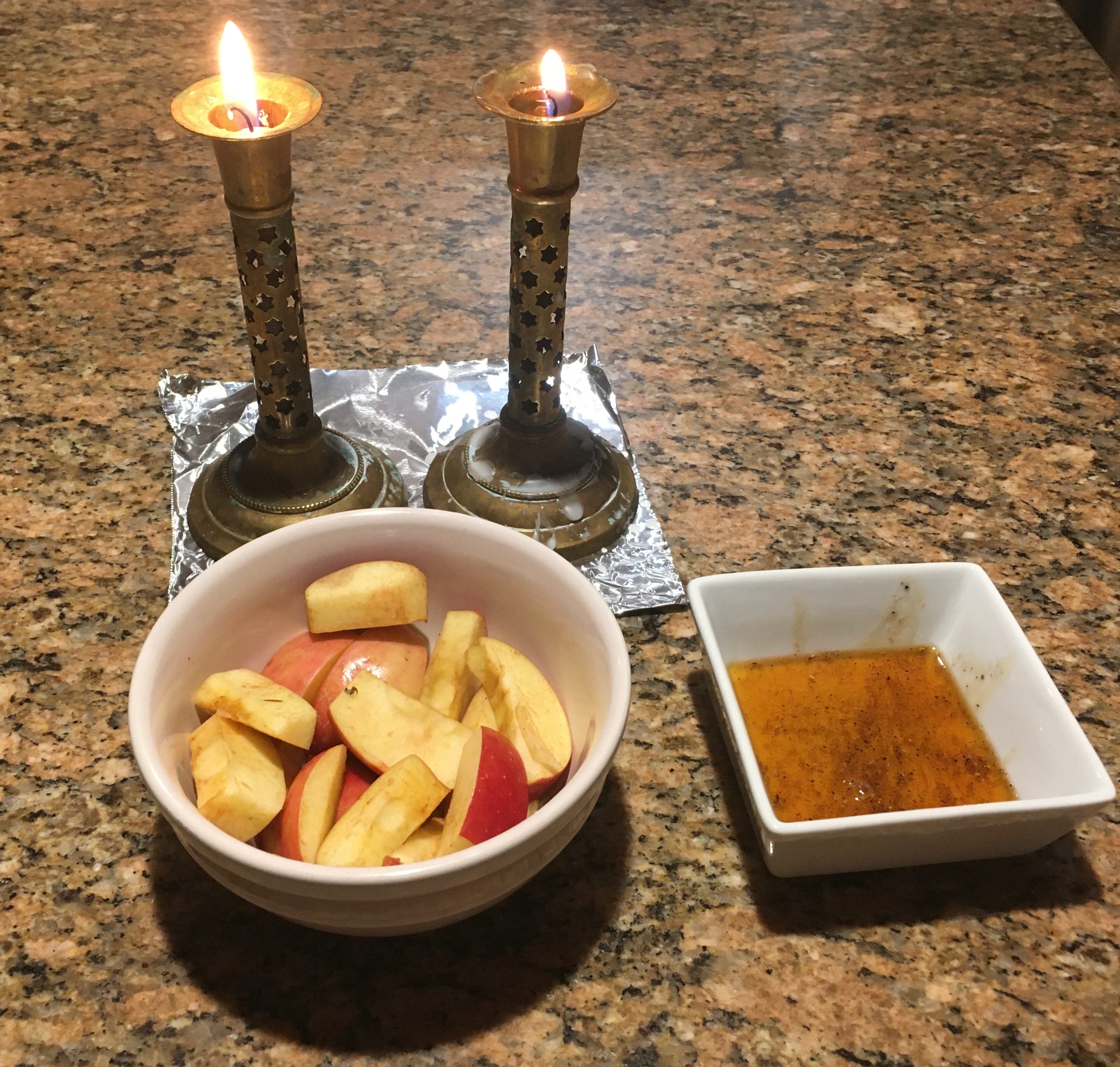
After davening the next morning (which I could barely follow; the siddur didn’t have English translations like I was used to, and I can only [barely] read Hebrew phonetically), Yossel had more Batman questions for me as we walked to their friends’ home for lunch.
“Is Batman Jewish?” he asked.
“He is on his mother’s side,” I said, thinking about Bruce Wayne’s cousin and my favorite Jewish lesbian superhero, Batwoman (Kate Kane). “But he’s not really, uh, practicing.”
“Is he married?”
“He… doesn’t have time for a wife.” Mind you, this was years before Batman’s ill-fated engagement to Catwoman.
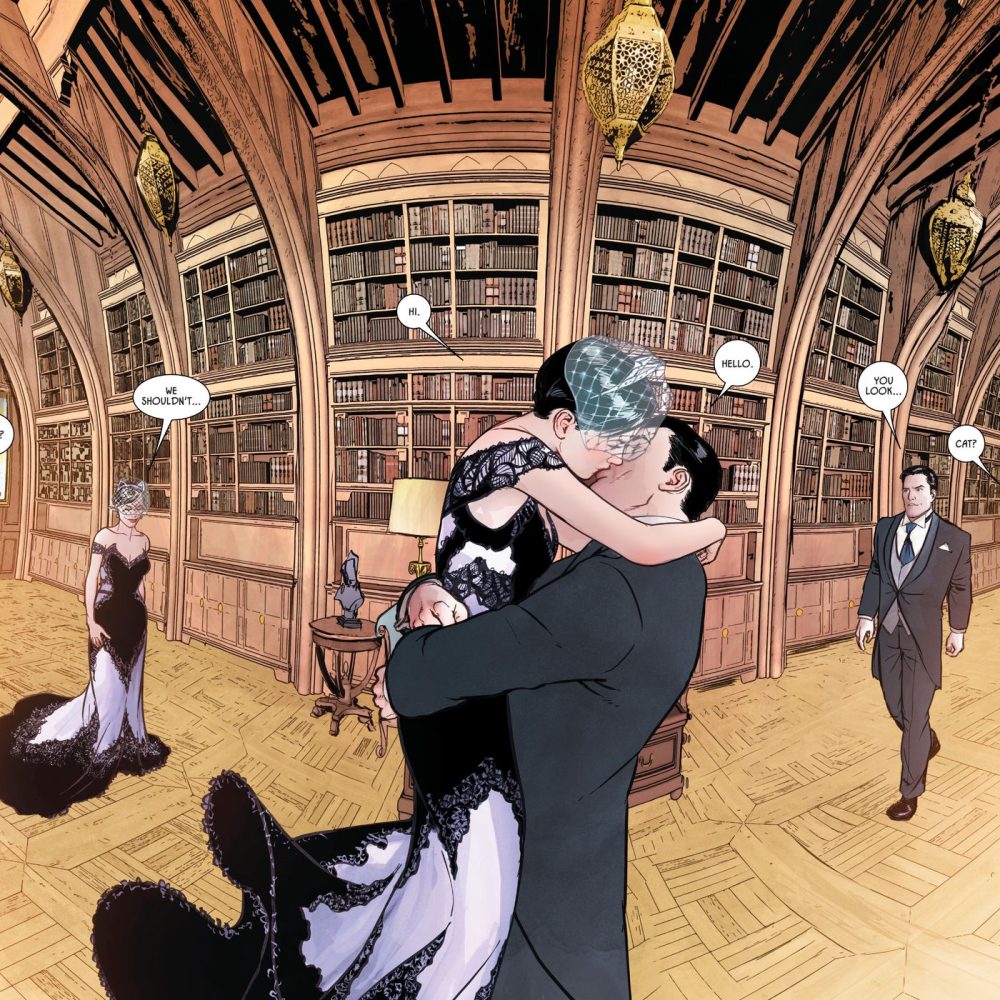
“No time for a wife?!” Yossel exclaimed, aghast. That part was especially interesting to me. Marriage, and by extension, having (lots of) children, is such a cherished and important facet of Hasidic culture that the idea of a grown, wealthy man with no immediate family must have seemed very foreign to a boy like Yossel.
But I explained that Batman had a very close group of associates known as the “Bat Family,” and even adopted a few children. I didn’t mention that the most recent Robin, Damian Wayne, was Batman’s biological son. Besides the fact that I didn’t dare explain how Batman had a child out of wedlock, I didn’t feel like going down the al Ghul family rabbit hole.
Yossel eventually turned his attention to the other visitors, so I spoke with his father.
“You know, I actually have some Batman comics in my bag back at your house,” I said. “If you’re comfortable with it, I’d be happy to show them to Yossel. They’re not inappropriate or anything.”
“I forbid it,” Yitzhak said. I had never heard anyone say “forbid” in such an even tone. “I don’t mind you talking to him about it, but if he sees pictures that leads to movies and TV and things like that, and we all know what that leads to.”
I knew what he meant. He didn’t want his child exposed to the perceived evils of mainstream entertainment. Naturally, I think that reading Batman comics makes you a better person, but I didn’t see any use in arguing with my host, especially one whose worldview was fundamentally different from mine. I dropped the subject.

Before I conclude, I should clarify that this family’s views do not represent the whole of Judaism or even Orthodox Judaism. Us Jews may only be 0.2% of the Earth’s population, but to borrow a phrase that I believe was coined by writer Greg Pak, there’s “a diversity of diversity.” We come in all shapes, sizes, colors, genders, sexualities, political alignments, and degrees of religiosity. There’s an old saying that goes, “two Jews, three opinions.” It’s a bit facetious, but it beautifully encapsulates how no two Jews are alike and that we can hold multiple—sometimes even seemingly contradictory—beliefs in our hearts.
All that being said, my experience with Yitzhak and Yossel confirmed for me that my approach to Judaism will always be—forgive the pun—unorthodox. I’m too agnostic to see myself ever committing fully to upholding certain traditions (many of which my own family didn’t even raise with me).
And I certainly couldn’t imagine a life without fiction. I’m grateful to have been raised in an environment in which fiction was valued. Some of my earliest memories are of my family sharing stories, from the picture books my mother read to me as a toddler, to even my father sharing his teenage love of Star Wars with me when he took me to see all of the original trilogy when they were rereleased in theaters for the Special Editions. Fiction not only entertained me, but taught me valuable lessons about life and the world. Fiction taught me how to have an imagination, and imagination allows me to envision a future that’s a kinder, safer, and more exciting place for everyone.
Don’t get me wrong; when/if I have kids, I plan on raising them with Jewish values and Jewish stories. But one of the things I look forward to most about becoming a father is reading Batman comics with my kids.


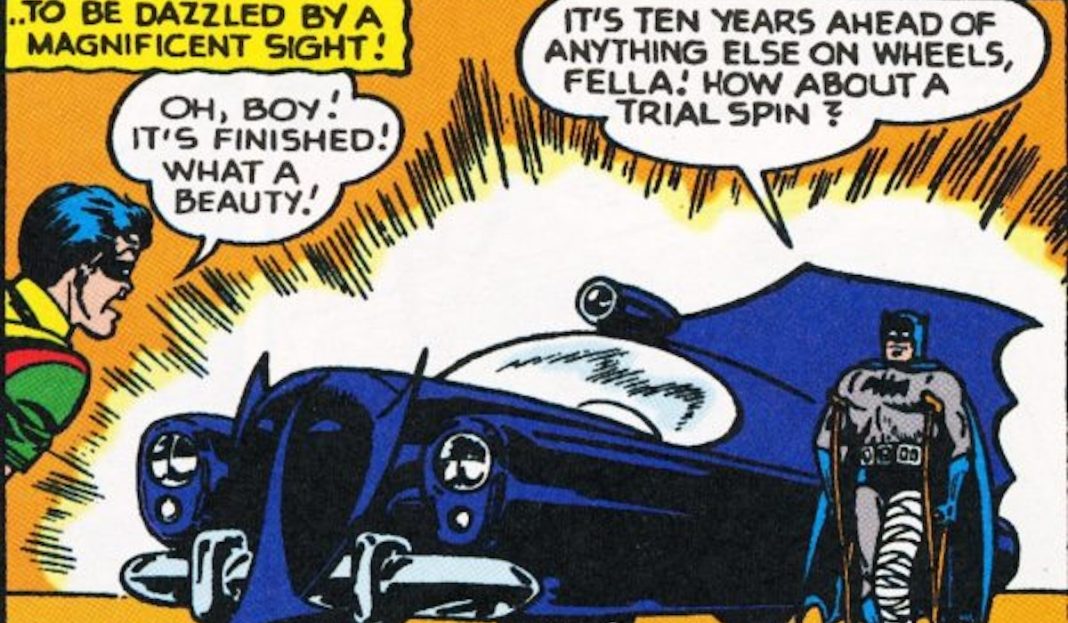
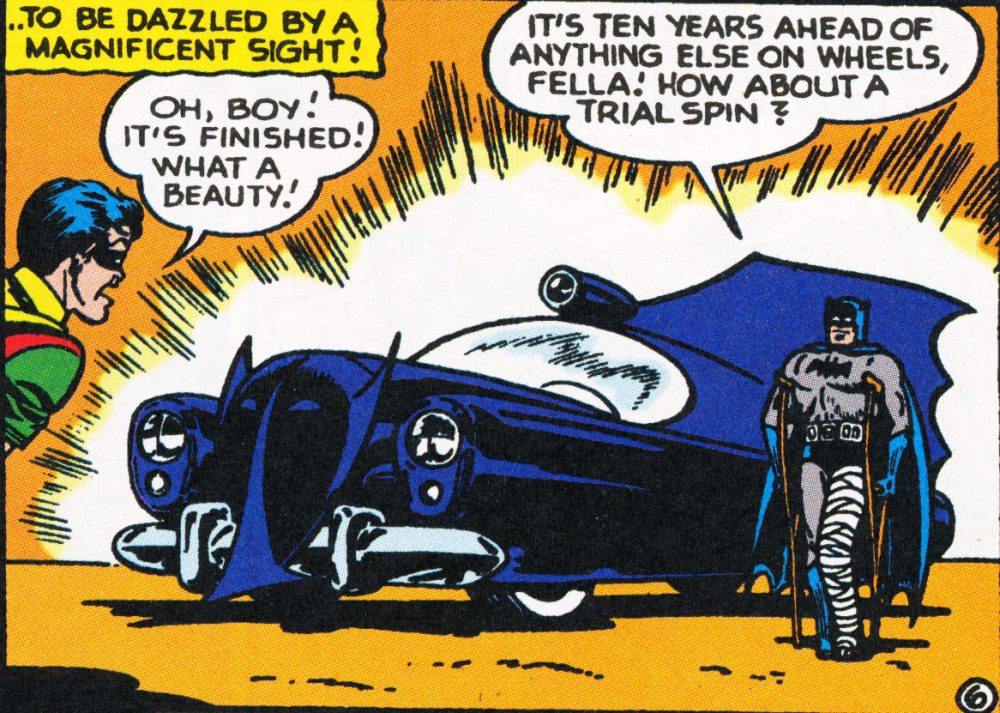
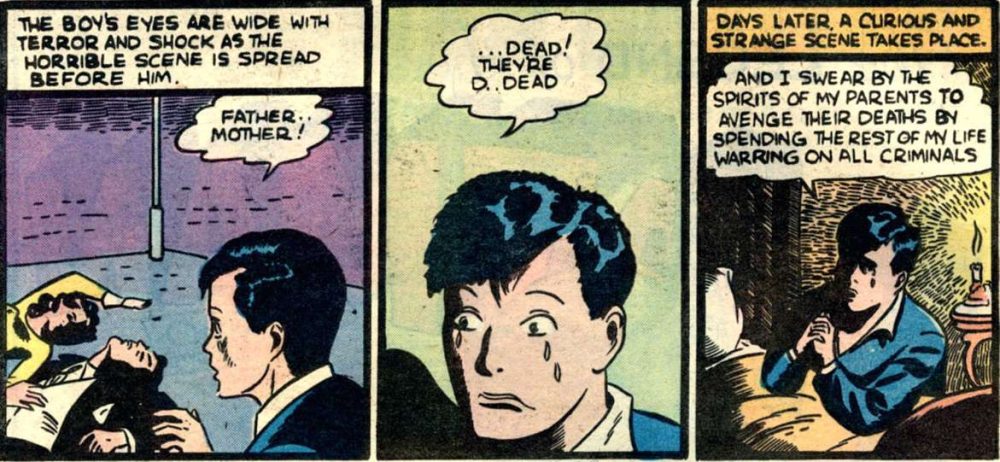
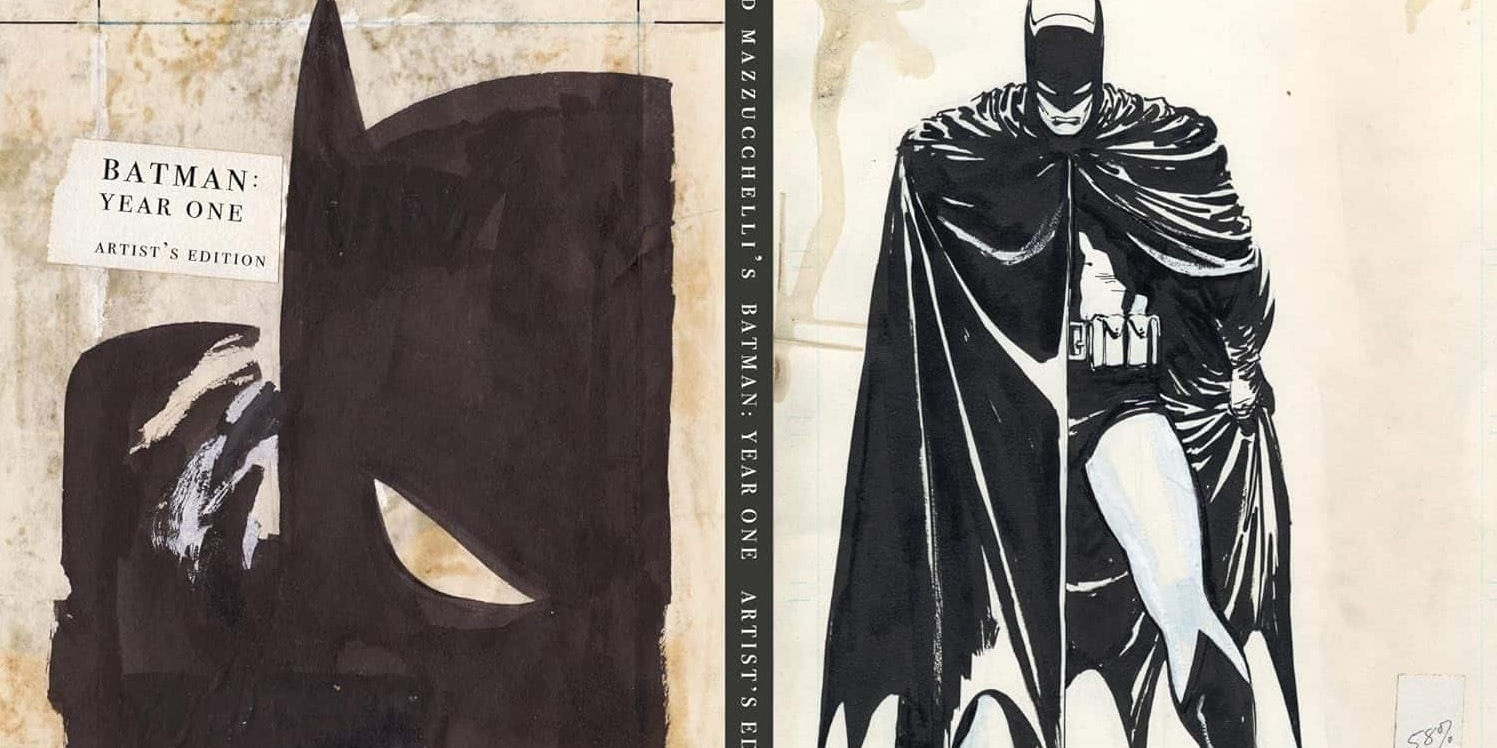
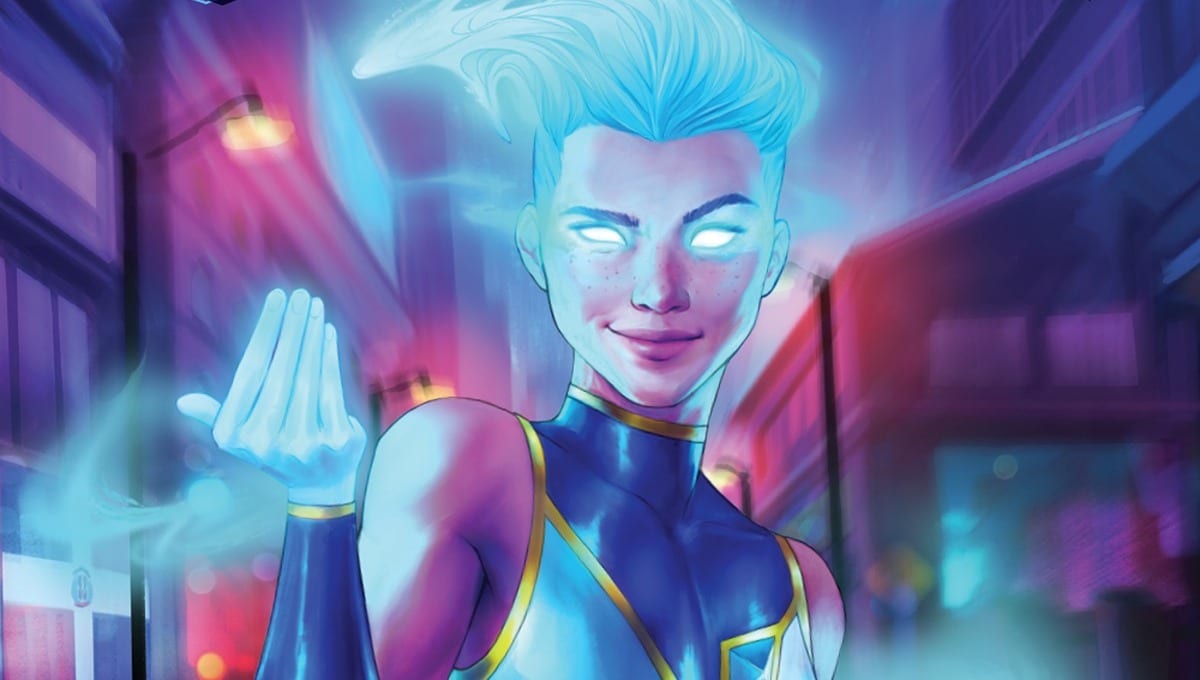
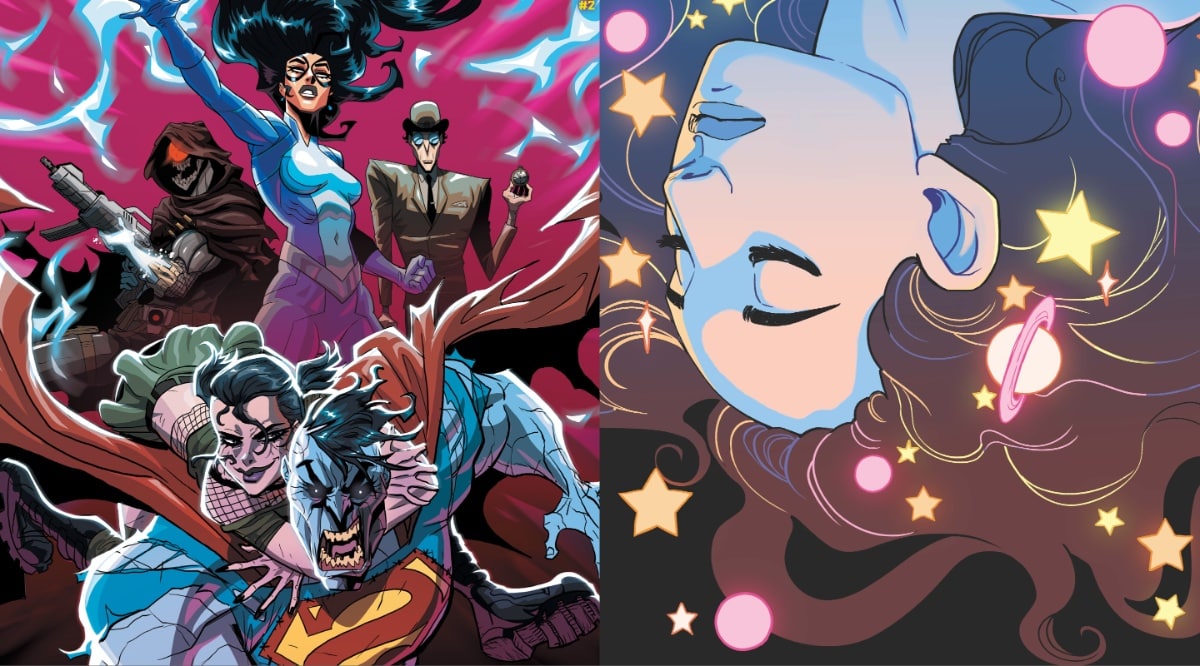


This was a lovely piece. thank you.
Comments are closed.